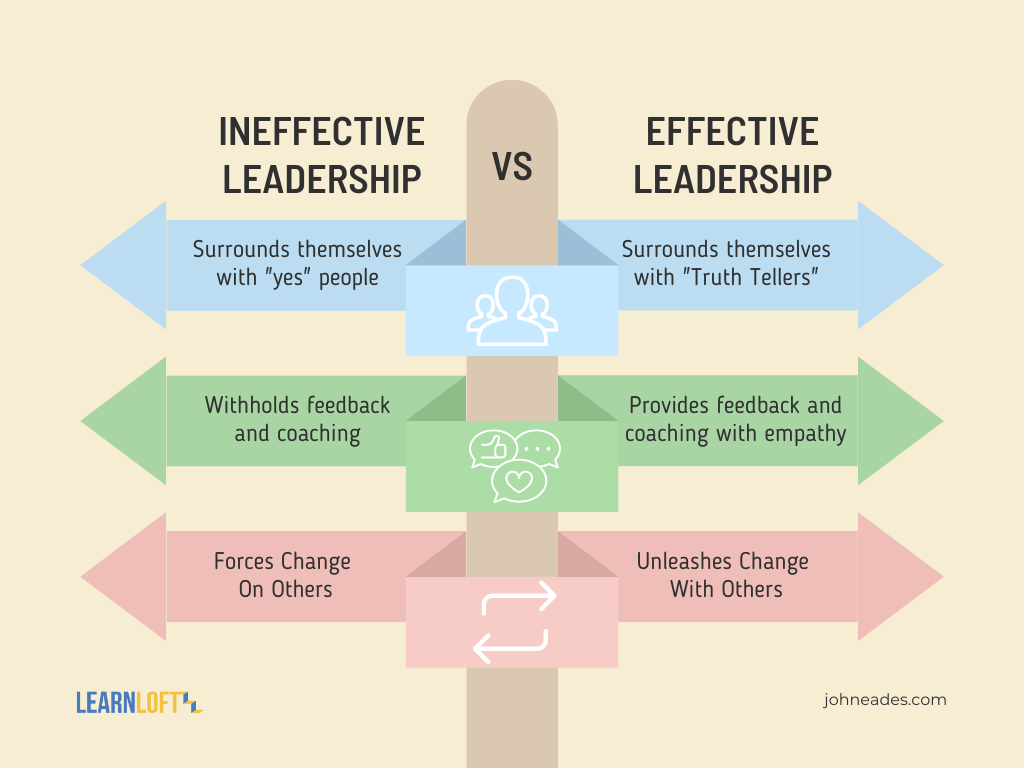Comments
- No comments found

The truth can set you free and create a brighter future than exists today.
Leaders often avoid the truth for fear of what might happen because of it. So they surround themselves with "yes" people who will shelter the truth and tell them what they want to hear.
While it might seem like a good idea, a team, organization, or person void of the truth cannot improve. Improvement starts with the truth. The leader who is courageous enough to seek, surround, and act differently because of the truth are the ones in a position to thrive.
Improvement starts with the truth.
Before we go any further, it's critical that we get on the same page about truth and what it actually is.
Everyone needs truth-tellers in their life, especially leaders. But before you assume, truth is defined as the property of being in accord with fact or reality. The simplest and easiest way to think about it is this way:
Truth = What Is
Dealing with reality and "what is" versus "what you hope" is paramount in life and leadership. Now here is where it starts to get interesting. You must be aware of multiple types of truths as a leader.
Subjective Truth: Truth based on a person's perspective, feelings, or opinions.
Objective Truth: Truth regardless if you see it, feel it, or can touch it.
For example, a subjective truth might be, "The team is performing well." An objective truth would be, "The team achieved 27% ahead of budget." Too often, leaders confuse a subjective truth with an objective truth. What I coach leaders to remember is that an opinion is not an objective truth.
An opinion is not an objective truth.
Now before you dismiss subjective truths as hogwash, both subjective and objective truths are powerful and essential for leaders to live within.
Proof eventually exposes itself to prove something is true. While it might not be immediate, it eventually happens. For example, a good golfer eventually shoots good scores. An effective driver has a safe driving record. A great salesperson exceeds their quota. The same is true for leaders.
One of the leadership principles in the Accelerated Leadership Program is; great leaders eventually get results.
Great leaders eventually get results.
In order to eventually get results, leaders must surround themselves with both subjective and objective truth. The best way to do this is to ensure you have people around you willing and able to share the truth. While also having quantifiable metrics and data to gather objective truth.

Some leaders do a good job of gathering the truth and using it to improve their own performance but stop there. This is an enormous mistake because leaders who are unable or unwilling to share the truth with others in fear of response make a big mistake. As I wrote in Building the Best, "Direct Dialogues during moments of difficulty can be uncomfortable, but consider the impact of not engaging in the dialogue.
If you withhold feedback in fear of a reaction, you are suppressing employees' potential by not sharing something that could help them on their journey—ultimately stunting their professional development."
When leaders withhold feedback in fear of reaction, they stunt professional development.
A meaningful dialogue that shares either subjective or objective truth requires the use of a three-part formula: Standards + Truth + Courage
Confronting the truth or sharing the truth with others can be as difficult to hear as it is to say. Leverage the powerful leadership skill of empathy to assist you. Which is putting yourself in someone else's shoes and acting differently because of it.
Remember, you have failed before and will fail again. You aren't perfect, and you should expect anyone else to be either. Deliver the feedback and share the truth with empathy, not with judgment.
Great leaders deliver feedback with empathy, not judgment.
The truth can set you and your team free as a leader. Now is the time to deal in "what is" not "what you hope it is." How are you going to invite the truth into the way you lead?
John is the CEO of LearnLoft, author of, F.M.L. Standing Out & Being a Leader and host of the 'Follow My Lead' Podcast. He writes or has been featured on Inc.com, LinkedIn Pulse, TrainingIndustry.com, eLearningIndustry.com, CNBC Money, and more. John completed his education at the University of Maryland College.
Leave your comments
Post comment as a guest